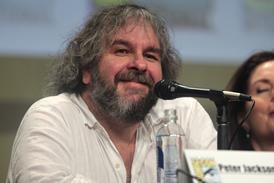While the UK wrestles with how to channel National Lottery cash into bigger budget commercial pictures, a trio of low-budget titles stole the limelight at a high-profile "state of the nation" panel discussion at the Edinburgh International Film Festival.
With panel chair and FilmFour chief Paul Webster inviting comments from the floor from the off, audience members variously cited Last Resort, One Life Stand and Billy Elliot as examples of low-budget UK film-making prowess. Paul Pawlikowski's Last Resort was financed by the BBC for TV to the tune of £400,000, while Mary Miles Thomas' One Life Stand was seen as exemplifying the best in current digital cinema.
Another Edinburgh festival title, Stephen Daldry's Billy Elliot, made through Working Title Films' WT2, is being hailed as the UK's biggest potential break-out hit since East Is East or even The Full Monty.
The wide-ranging discussion, ominously titled "A Nation Mourns", was particularly timely as UK film super body the Film Council is hammering out twin strategies for funding large-scale, commercial films and smaller, edgier fare through two main lottery funds.
Speaking on Webster's invitation from the audience, Robin Gutch, head of FilmFour's low-budget wing FilmFour Lab, stressed the need to back innovative filmmaking as the bed-rock of the sector. He pointed to a lack of interest in titles such as Last Resort from broadcasters, one of the UK's primary funding sources.
"Last Resort is an absolutely fantastic film," he declared. "But there are probably about three a year on the BBC. Channel 4 is the same."
Webster, whose panel included director Lynne Ramsay, producer Andrew Eaton and journalists Baz Bamigboye and Elvis Mitchell, talked of the difficulties in securing screens for edgier fare. He cited Buena Vista Social Club, which had to move from indie screen The Gate in Notting Hill, London, to a multiplex after two weeks. In its second week at the 281-seat cinema in Notting Hill, the Wim Wenders documentary took £24,000; in its first week at the Whiteleys multiplex, it took £4,000.
Producer Scott Meek, speaking from the audience, highlighted the potential of electronic cinema as a solution. "The notion that independent films with an independent spirit, made as an act of self expression, necessarily have to open with prints and advertising in conventional cinemas is actually a bit like us clinging on to silent cinema at the beginning of sound."
Meek described how filmmakers could create web-sites where the potential audience for a film could go and pre-buy a picture. When the film is finished, he said, the investors could receive it on a DVD and be credited as executive producers.
"The difference with independent cinema in America is that a lot of young Americans know enough aunts, uncles, doctors or dentists to get bits of money together to do something," he said. "There are less people in this country to do that. That's a fundamental difference. Making films electronically may release people into having that kind of independent sector here. It hasn't done so yet, but it may happen."
Eaton cautioned that broadcasting films via the Internet may take longer than hoped. Although he set up a highly successful independent web-site for his latest production, The Claim, he warned: "That whole business is a little further away than people think because broadband technology is not going to happen for a while."
Ramsay, director of Ratcatcher, sounded a positive note, pointing out that there is funding for auteurs in Europe: "Filmmakers are coming to Europe for finance, they don't get their financing from America," she said. "Atom Egoyan gets his money from overseas, so does David Lynch."
The discussion was the first of three main panel groups at Edinburgh focusing on the current film climate. The second focuses on the newly-launched Film Council, while Saturday sees a discussion on the three lottery studio franchises.



















No comments yet